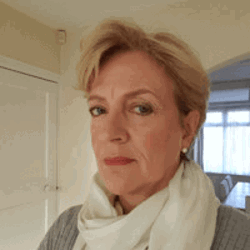The Royal Academy of Engineering has awarded its prestigious Leverhulme Trust Research Fellowships to seven outstanding engineering researchers working on a wide variety of engineering challenges.
Fellowships funded range from the development of new superabsorbent materials and improved machine listening technologies to faster quantum computing and communication networks. Awardees are also using computational modelling in fields as diverse as the clinical treatment of tremors or joint degeneration resulting from haemophilia to improving the integrity of materials used in the aerospace industry.
The Fellowships, which are supported by the Leverhulme Trust, allow awardees to focus on full-time research for up to a year by covering the costs of a replacement academic to take over their teaching and administrative duties. This allows mid-career engineers to reinvigorate their research interests and also gives other junior academics the opportunity to gain valuable teaching and administrative experience by stepping in during the duration of the award.
Professor Anne Trefethen FREng, Chair of the RAEng / Leverhulme Trust Research Fellowships panel said: "I am delighted to see such a wide range of research covered by this year's awardees and that we’re able to support such outstanding individuals across the UK from Scotland to Southampton. These research projects have the potential to deliver substantial benefits to society and the economy and I hope our support will help them to be realised."
The full list of 2023/24 RAEng/Leverhulme Trust Research Fellows is:
- Dr Emmanouil Benetos, Queen Mary University of London
Resource-efficient machine listening - Dr Kaveh Delfanazari, University of Glasgow
On-chip generation of coherent continuous and pulsed terahertz waves for future quantum communication systems - Dr Daniel Barreto Gonzalez, Edinburgh Napier University
Statistical and machine learning approaches for the characterisation of soils - Dr Marlène Mengoni, University of Leeds
COMP-HA: Computational mechanobiology for treatment discovery in Haemophilic Arthropathy - Dr Muhammad Wakil Shahzad, University of Northumbria
Functionalised composite adsorbent material for industrial applications (FAM) - Dr Nada Yousif, University of Hertfordshire
Multi-level computational modelling for improving clinical outcome in treating tremor - Dr Jie Yuan, University of Southampton
Multi-scale friction interface design for resilient and sustainable dynamical systems
More information about the awardees’ research can be found here.
Notes for editors
The Leverhulme Trust was established by the Will of William Hesketh Lever, the founder of Lever Brothers. Since 1925, the Trust has supported grants and scholarships for research and education. Today, The Leverhulme Trust is one of the largest all-subject providers of research funding in the UK, distributing over £60m a year. The Trust provides funding across a range of academic disciplines such as arts, sciences, engineering and social sciences, with an aim of supporting talented individuals to realise their personal vision in research and professional training.

